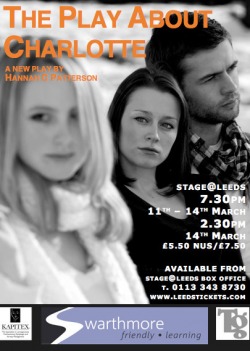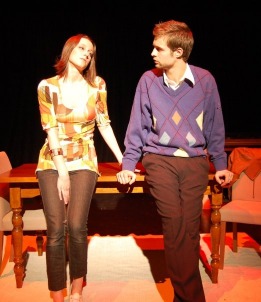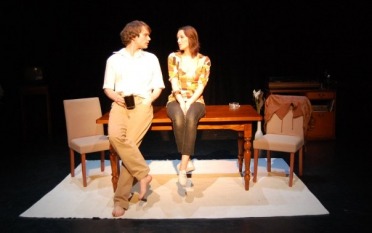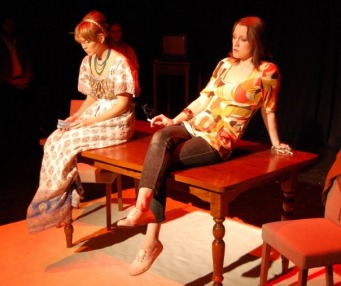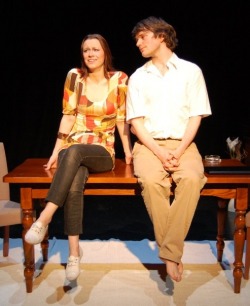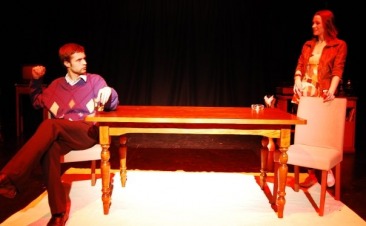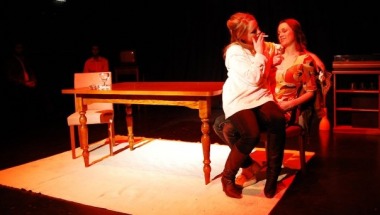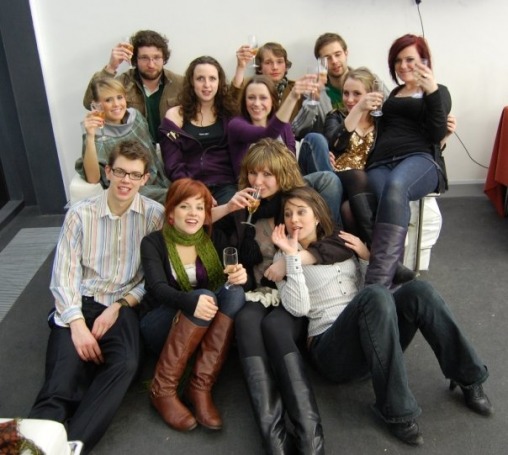THE PLAY ABOUT CHARLOTTE
by hannah caitlin patterson
By Hannah C Patterson
Directed by Hannah Patterson and Lucy Tellick
Produced by Fran Stokes and Tom Large
Lighting: Tanya Stephenson
Cathy: Rachel Helen Shaw
Jamie: Pierre Tailleux
Michael: Edmund Digby Jones
Charlotte: Helen Kennedy
Julie: Flick Elder
Edie: Mariel Kaplan
Marge: Georgia Murphy
Steve: Liam Mulvey
Doctor: Sophie Romanik
DIRECTOR'S NOTE
As a Writer, I am notoriously reluctant to discuss my own work with regards to its meaning. It has been pressed upon me since a very early age that the independence of thought is not something to be taken for granted and consequently I feel it's necessary to allow the audience to their own point and meaning in the script. Therefore, as the Director, I have this short note for you.
The Play requires little effort from the spectator to uncover the thought-processes behind Cathy's actions as they are explored on stage and the work is done for you. The interest lies in, I hope, finding your own identification with the characters and their experiences as this play is not a study of Cathy's character alone, but of the human condition as a whole and this production has been designed to emphasise this.
The Play about Charlotte has been an important part of my life for over a year now. I couldn't have asked for a more talented and hard-working cast and production team. I only hope that I have done them justice and a major thank you goes out to everyone who has made this production possible.
REVIEW - LEEDS STUDENT NEWSPAPER
By Tom Knowles
To write and direct your own play must be hard. Characters need to be engaging, script entertaining, and the overall piece ideally thought provoking. But to do this as a student with a degree breathing down your neck must be double the challenge. Yet The Play About Charlotte manages brilliantly…
… A 60’s background is observed with nice touches. Beatles songs play in the background. Characters wear brightly coloured outfits, whilst everyone is constantly smoking. All revolves around a table. The characters enter in and out of scenes from seats around the stage, their eyes otherwise always centred on the protagonist Cathy, who often climbs over the table, symbolic perhaps of attempting to break the interrogative nature others put upon her.
As Cathy’s tensions between reality and memory grow, scenes cleverly exploit this. Many actors collide on stage at the same time, whilst lines will be repeated in several scenes by different characters until the audience are unsure of what is reality themselves.
The script is good but it helps to have a cast of such high calibre as this one to deliver the lines. Pierre Tailleux gets the growing frustration and loss of love for Cathy nicely…
